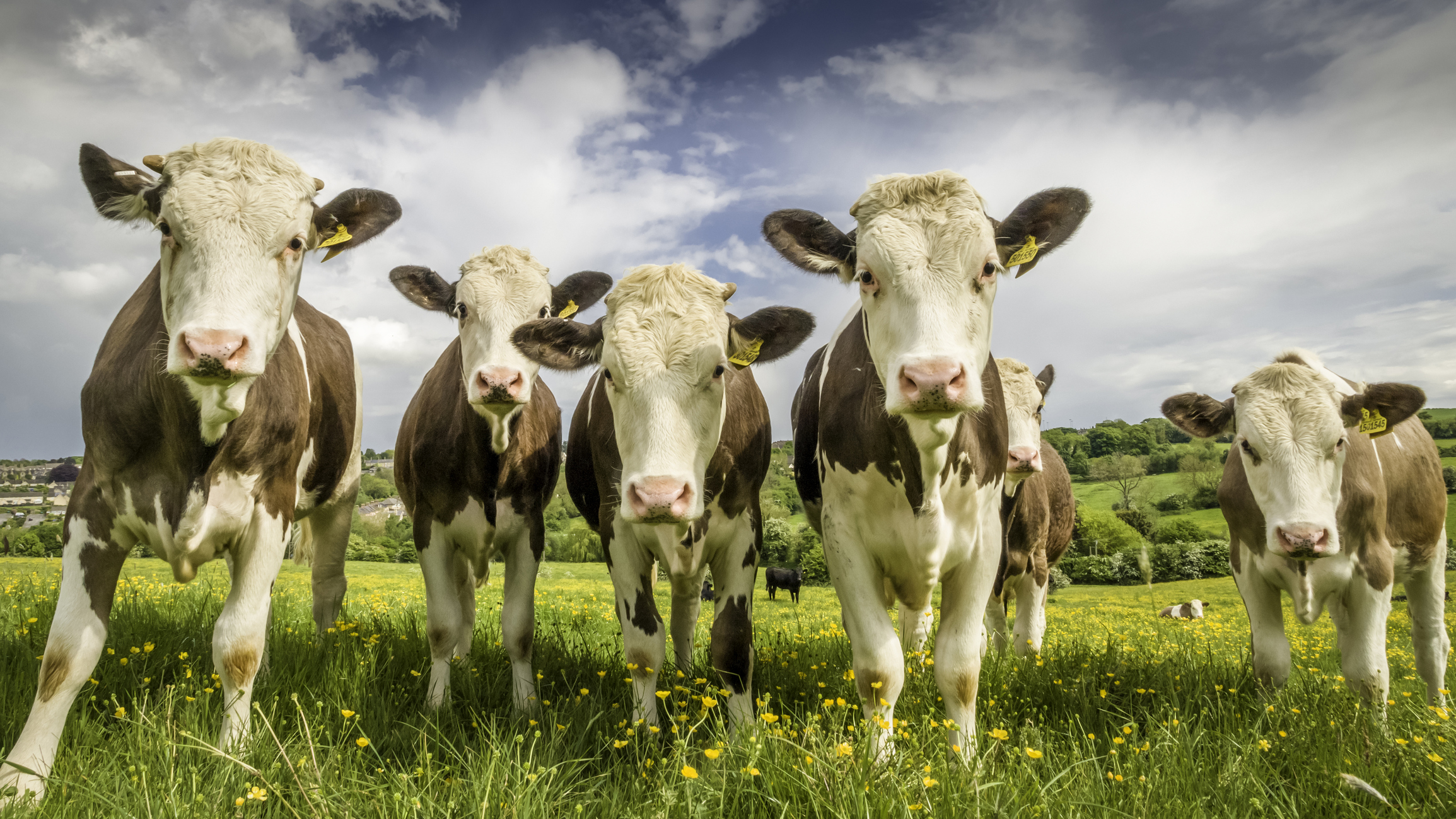As has been widely reported, UK dairy farming is currently experiencing extreme economic uncertainty and insecurity, with its very future existence under threat, the result of the Coronavirus/Covid-19 outbreak. As with most other countries, the UK adopted extreme shutdown measures in an attempt to curtail the spread of the Covid-19 Coronavirus. Therefore, the shutdown enforced the closure of most bars, cafes and restaurants - in effect, the UK hospitality industry essentially ceased functioning overnight. However, the dairy and hospitality industries are closely intwined; indeed, the hospitality industry is a major source of revenue for dairy farmers. Consequently, the shutdown of operations in the hospitality industry resulted in the dairy industry experiencing an almost immediate and catastrophic knock-on effect.
Certainly, there have been several reports indicating that dairy farmers are having to resort to disposing of milk on their farms and the slaughter of livestock due to the sudden lack of demand (https://metro.co.uk/2020/04/09/dairy-industry-crisis-millions-pints-milk-going-waste-12534097/). This is not only of major economic concern, but also raises ethical questions around dairy farmers being forced to slaughter animals and waste perfectly good produce, particularly, in a time of national crisis. In addition, therefore, (although there is not the scope here to go into extensive detail), the slaughter of animals and wasted milk produce, reveals apparent flaws at a more structural level, in terms of the prevailing economic structure and as a consequence, embedded policy.
Accordingly, it is of no surprise that the NFU has warned of potentially extreme and long-lasting consequences for the UK dairy industry as a whole.
April Crisis Meeting
On April 15th a crisis meeting, called by the NFU, was held between many in the industry, including trade representatives, trade organisations and the Department for Environment, Food and Rural Affairs (DEFRA). NFU president Minette Batters emphasised the importance for government and all in the industry to come together, to prevent disruption to the milk/dairy supply chain and to avert long-term catastrophic and economic damage to the industry as a whole. Batters and the NFU put forward the following key requests to the UK government:
The government should provide access to the Retail and Hospitality Grant Scheme, which provides businesses in the retail, hospitality and leisure sectors with a cash grant of up to £25,000 providing a much-needed lifeline for businesses, or a similar scheme, for those in the agricultural sector affected by coronavirus market disruption.
To engage with the EU Commission about schemes such as PSA, production reduction and market promotion to help restore confidence in the market and prevent adverse publicity related to disposal of milk. Government should explore all crown buying service contracts to make sure our NHS, military and prisons are all sourcing fresh milk. Government should also explore measures to inject cash into the sector via the 2020 BPS.
Defra to urgently convene with key stakeholders and help manage flows of milk through the supply chain. It is essential that government convenes this meeting to maximise industry solutions and confirm that the temporary change to competition law will allow this to happen, without discussing prices. (https://www.nfuonline.com/news/coronavirus-updates-and-advice/coronavirus-news/coronavirus-nfu-seeks-crisis-meeting-with-defra-secretary-to-save-uks-iconic-dairy-sector/)
Help for Dairy Farmers and for the industry as we move into May 2020: where are we now?
According to a BBC report on the 28th of April (https://www.bbc.co.uk/news/uk-politics-52447520), the UK government is considering a hardship fund for dairy farmers, which would potentially, be in the form of a targeted time-limited payment for those farmers most severely affected. Furthermore, farmers are now able to access the existing financial support measures put in place elsewhere. The NFU, Dairy UK and the Provision Trade Federation have proposed a grant support scheme and a scheme allowing for the possible furloughing of cows. Whilst DEFRA, has stated that it has now relaxed competition law in an attempt to help the industry function more effectively during this time.
Although the coronavirus crisis has pushed the dairy industry to the brink, causing many farmers extreme worry and potential hardship, it does however provide an excellent opportunity for reflection and positive change, not only for UK dairy, but also, UK agriculture as a whole. Valuable lessons will undoubtedly have been learned; lessons that will prove vital for the long-term prosperity for all in our industry and indeed, wider society.
If you're looking for work in the agricultural sector, Agricultural Recruitment Specialists can help you find the right niche in the UK, Europe and beyond. We can assist in finding which doors are open for you with your specific background and even advice on what you could do to improve your prospects.
Agricultural Recruitment Specialists are worldwide recruitment experts in agricultural, food, farming and rural recruitment and have a variety of executive and management positions available within agriculture, horticulture and the food and rural sectors throughout the UK and the rest of the world. To find out more about our agricultural job vacancies and discuss your future career, contact our team of agricultural recruitment professionals. You can visit our website here: www.agriRS.co.uk or call our team on: 01905 345 155 or email us at: info@agriRS.co.uk












